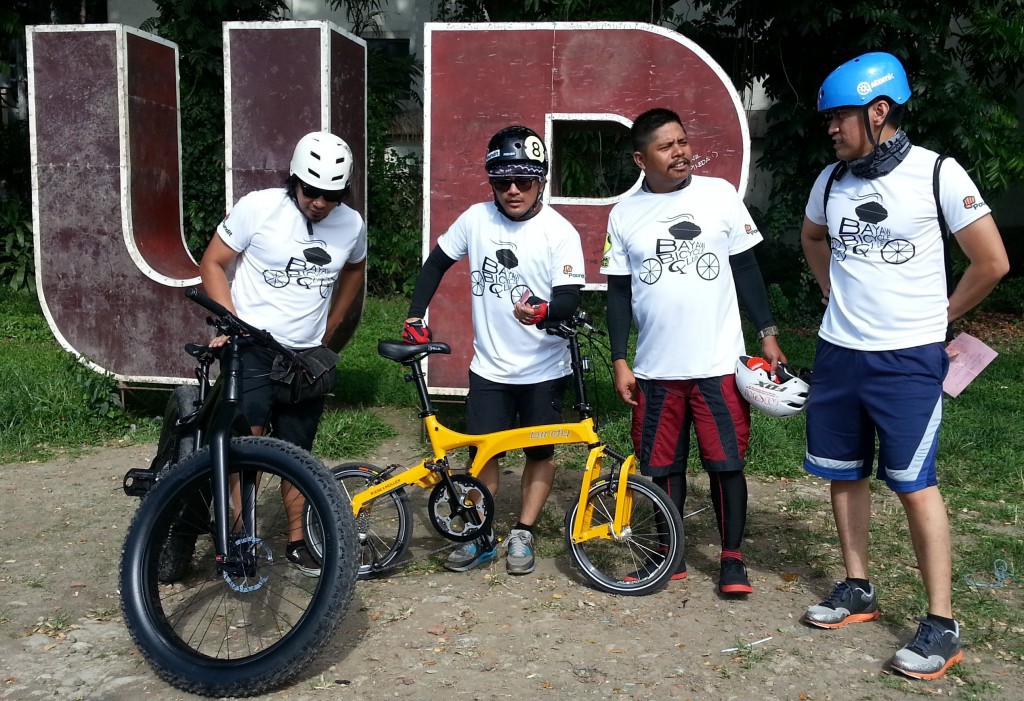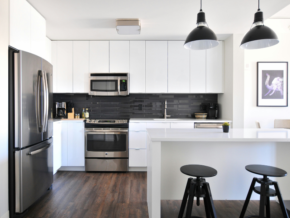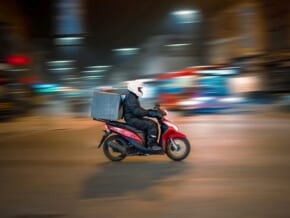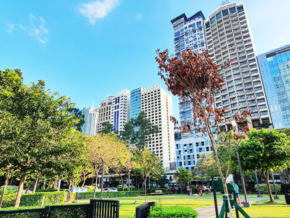Pedal Power: Riding a Bike in the Philippines
Heavy traffic is a constant problem in the Philippines, especially when you live in Metro Manila. People have gone to so many lengths just to survive the daily commute, such as leaving your house earlier than usual, getting a house near your work, or working from home.
People have also taken the matter into their own hands, i.e. getting their own means of transportation; and we’re not talking about four-wheeled vehicles either. Motorbikes have seen a surge thanks to these factors:
● No garage needed
● Big savings especially on fuel
● Great for daily trips to and from the office
● Virtually immune to heavy traffic
● Parking is almost a non-issue
The only downside that you’ll have with motorbikes is that you’ll have to put up with drivers who are not used to sharing the road with bikes. This gives you a higher chance of being involved in an accident.

THE BAYAW BICYCLE CLUB. An online video series formed by television network TV5 personalities Jun Sabayton, RA Rivera, Ramon Bautista, and Lourd De Veyra, they go around the streets of Metro Manila to promote bikes as a form of transportation. (Photo grabbed from ValleyBikes)
However, there another that certain groups have been advocating: riding a bicycle. It’s an even more low profile means of travelling to and from work, with the same, if not better, advantages compared to any motorized vehicle:
● No garage necessary
● No fuel cost
● Low maintenance (just make sure everything is clean)
● Good for short trips to work
● Virtually immune to heavy traffic
● No parking issues
● No “I’m out of fuel” issues
● Free workout (goodbye, flab!)
It may not be a part of mainstream transportation, but there are people who ride their bike to and from work, even in the busy streets of Metro Manila. It’s a scary proposition, mostly because of these issues:
● No bike lanes. Bike lanes are scarce in Metro Manila. EDSA only has a couple of stretches of bike lanes, located between MRT3 Magallanes and Ayala Stations, and the stretch between Santolan and Ortigas Station. Beyond that, bikers have to make do with pedestrian lanes or worse: take to the streets where you’re almost invisible.
● Car doors. The general public is not used to the bike as a form of transportation. They look at it as something that kids would use for transport, or as a way for adults to stay fit. It’s hard enough to ride a bike along EDSA; it’s even harder when you get to your destination only to have a car park in front of you, open its door, and slam into it.
● Exposure to everything. Just like with a motorbike, you’re exposed to the elements. However, unlike a motorbike, you don’t have the luxury of putting on a raincoat, lest it gets caught in your chain. That’s not the worst part, though; it’s far worse when you realize you’ll be constantly bombarded with smoke from all sorts of vehicles, though buses and jeeps are particularly painful to ride next to.
● Pedestrians. Yes, there are no bike lanes in Metro Manila, which means you’re forced onto the sidewalk. This means having to dodge people who sometimes are not aware of their surroundings: listening to music, texting, taking/making a call, talking to their friend, or trying to catch them all.
● You’ll likely be a daytime-only biker. No matter how many reflectors you have, it seems motorists have no way of seeing you… even with their headlights on high beam. You might as well carry a neon sign that tells people where you are on the road, or be lit up like a Christmas tree.
So why still take that bike to work? Well, for one the pros still outweigh the cons. You’ll also get used to riding your bike in the city so much you’ll find alternate routes to get around the cons. Your lungs may hate the smog, but it will thank you later when you have to rush to that meeting on foot. You can also say goodbye to any unsightly fat thanks to the exercise.
There’s House Bill 3827, or the Bicyclist Act of 2014. Filed by Pasay City Rep. Emi Calixto-Rubiano, it seeks to establish Local Bikeway Offices (LBO) in every city and municipality in the country to promote the use of bikes. It hasn’t been touched as of late, but groups like Bike To Work Pilipinas have been advocating bike-use not just as a means to better health, but as a true alternative form of transportation as well.
With the Duterte administration looking to further decongest the city, it may only be a matter of time before they looked into this bill. Only time will tell if bikes would become mainstream in the Philippines.
Source: Looloo Insights, GMA News Online, Rappler













